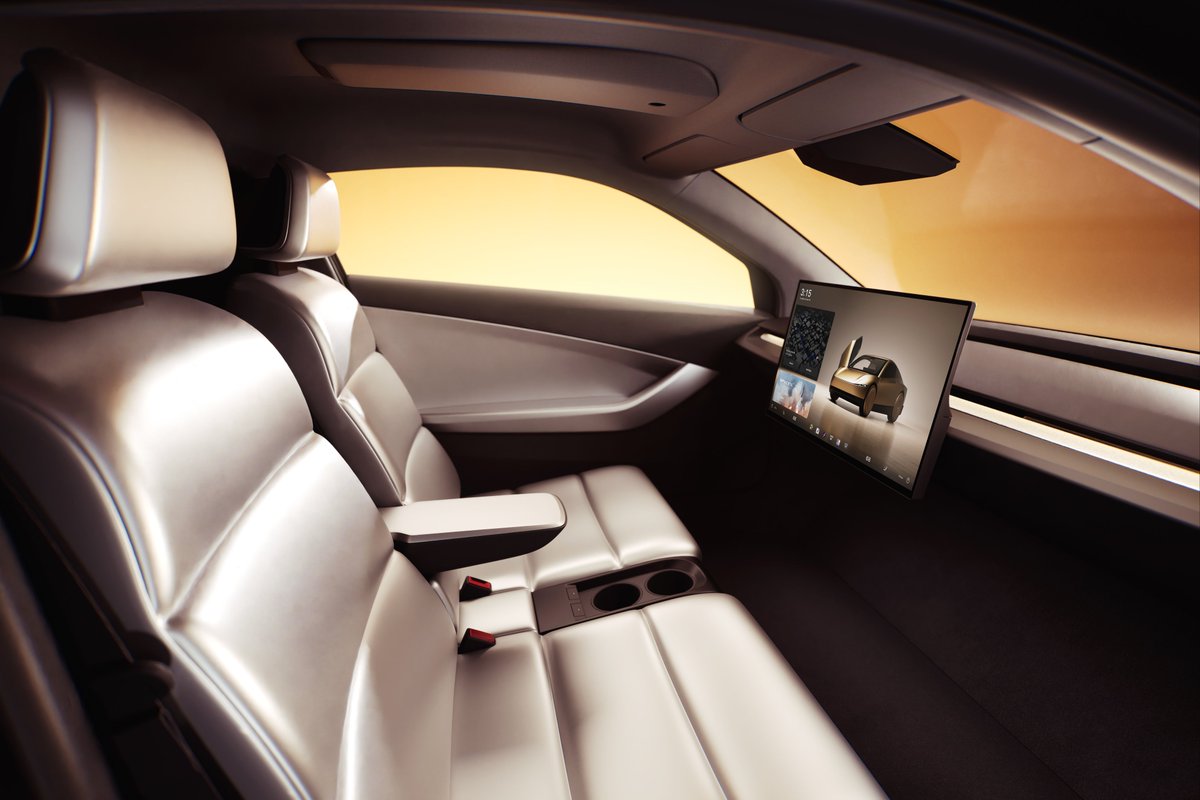Elon Musk’s Tesla has been handed another setback for its “Robotaxi” project, which it claims will arrive in June this year.
Techcrunch reported that Tesla’s attempt to trademark the term “Robotaxi” in reference to its “Cybercab” vehicles has been refused by the US Patent and Trademark Office (USTPO) for being too generic.
However it noted that another application by Tesla to trademark the term “Robotaxi” for its upcoming ride-hailing service is still under examination by the office.
Tesla Cybercab / Robotaxi / Robovan
Elon Musk and Tesla had finally unveiled its ‘Cybercab’ robotaxi prototype in October 2024, and demonstrated its ability to navigate through a highly controlled environment at Warner Bros. studio in Burbank, California.
But the Cybercab had two seats rather than four for the Model 3, and lacked other components such as a steering wheel or pedals.
And it seems that Tesla intends to launch its planned robotaxi service initially with human back-up operators for safety purposes – meaning only one seat for the taxi passenger.

At the same launch event last October, Musk also revealed plans to produce an autonomous, electric Robovan that can carry up to 20 people, or be used to transport goods.

Image credit Tesla
Musk claimed it would “solve for high density,” transporting a sports team, for example.
Following that launch event Tesla was sued by the makers of the film Blade Runner 2049 for imagery at the event that the filmmakers claimed was derived from the film without permission.
The makers of an earlier film, I, Robot, also noted imagery they claimed was suspiciously similar to their film.
And investors were not overly impressed after the unveiling, and Tesla shares fell 6 percent within hours.
Tesla apparently applied for the “Robotaxi” trademarks in October 2024 on the same day that it had revealed the Cybercab.
Tesla also submitted two similar trademark applications 10 October for the term “Robobus,” which are still under examination. It is not clear if an application has been filed for its “Robovan.”
Trademark denied
And now Techcrunch has reported that Tesla’s attempt to trademark the term “Robotaxi” for its vehicles has been denied for being too generic, whilst another application by Tesla to trademark the term “Robotaxi” for its upcoming ride-hailing service is still under examination by USTPO.
Techcrunch noted that in addition, applications from Tesla for the trademark on the term “Cybercab” have been halted due to other companies pursuing similar “Cyber” trademarks.
That reportedly includes one company that has applied for numerous trademarks related to aftermarket Cybertruck accessories.
The USPTO Tuesday reportedly issued what is known as a “nonfinal office action” on the “Robotaxi” trademark application, Techcrunch reported, which means Tesla has three months to file a response or the office will abandon the application.
Missed deadlines
Musk had touted robotaxis for many years, and has repeatedly missed his own stated deadlines.
In 2015 for example, Musk told shareholders that Tesla cars would achieve “full autonomy” within three years.
Then in 2016 Musk touted robotaxis in a 2016 “master plan”, and promised Tesla fans a self-driving car that was capable of driving from Los Angeles to New York without “the need for a single touch” by the end of 2017.
Then in 2019, Musk raised billions of dollars for Tesla by promising investors the company would have 1 million “robotaxi ready” cars on the road by the end of 2020.
In July 2020, Elon Musk claimed that Tesla was “very close” to achieving level 5 autonomous driving technology.
Level 5 is the holy grail of autonomous driving technology, as level 5 vehicles will not require human intervention, and need for a human drivers is eliminated.
Tesla’s FSD currently operate at a level-two, which requires the driver to remain alert and ready to act, with their hands on the wheel.

